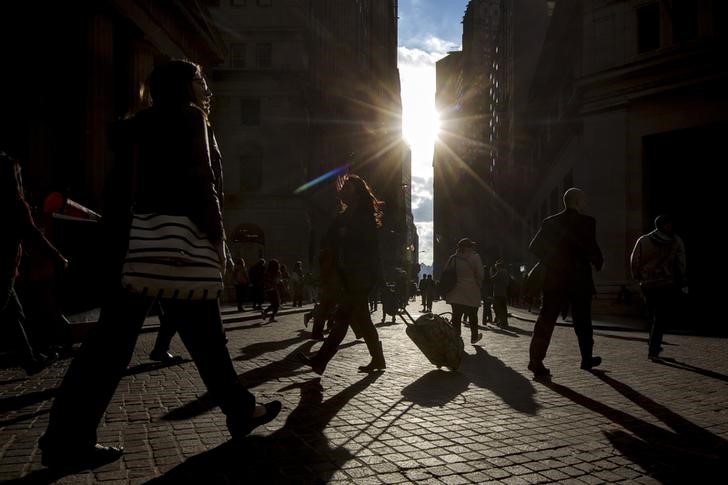SAP sued by o9 Solutions over alleged trade secret theft
Investing.com - The U.S. economy is likely to be on "more stable footing in 2026" after a "tumultuous" year, according to analysts at Deutsche Bank Research.
In a note, the analysts including Matthew Luzzetti said "some headwinds [are] fading," such as uncertainty around U.S. trade policy. Meanwhile, tailwinds, like lower tariff rates and tax cuts from President Donald Trump’s signature budget bill, are "strengthening," they said.
Get the latest updates and insights on the biggest market-moving stories by upgrading to InvestingPro - get 55% off today.
Against this backdrop, U.S. growth is anticipated to pick up next year to 2.4%, and remain in the 2%-2.25% range in 2027 and 2028.
A more certain economic environment is especially tipped to help hiring steady in the second half of 2026, pushing down the unemployment rate from a projected peak of near 4.5%.
Yet the U.S. labor market, which has shown signs of weakening in recent months, remains "vulnerable," particularly to possible job losses motivated by mass adoption of artificial intelligence tools, they warned.
At the same time, price gains are anticipated to once again ease in the back-half of next year, but wider economic resilience and "persistent supply-side shocks" are expected to keep inflation stubbornly above the Federal Reserve’s 2% target level, the analysts argued.
Above-target inflation, coupled with solid growth and stabilizing hiring, may persuade Fed policymakers keep interest rates on hold in early 2026, they added. Fed officials are currently debating whether to roll out another rate cut in December, after slashing borrowing costs by 25 basis points at each of the central bank’s past two meetings in October and December to a current target range of 3.75% to 4%.
The Fed is then seen restarting cuts next September, once Trump has replaced current Fed Chair Jerome Powell with someone likely to be more "dovish" in their outlook, the analysts said. Powell’s term at the head of the Fed is due to end in May.
While the outlook is "relatively constructive," risks "abound," the Deutsche Bank analysts flagged.
"Recession probabilities are somewhat elevated, given uncertainty about the outlooks for labor demand and supply. AI presents two-sided risks to the outlook -- the potential to weaken employment further while boosting productivity gains. Market concerns around Fed independence or fiscal sustainability could also reemerge," they wrote.
